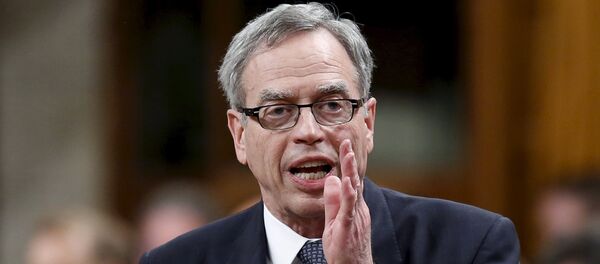“The President [Obama] will be making the case to his European colleagues that the European Union should move ahead and extend sanctions when they end,” Kupchan said.
In 2014, the United States, the European Union and some of their allies imposed economic sanctions on Moscow over alleged meddling into the conflict in eastern Ukraine. Moscow has repeatedly denied the allegations and calls on the diplomatic resolution of the crisis.
US Deputy National Security Advisor for Strategic Communications Ben Rhodes in the same discussion explained that the sanctions take time to have economic effect, and argued that this is the reason why it is important that they are maintained.
“So that they [sanctions] are not just seen as one time punishment…but rather we need to maintain the pressure and show that there can be no cracks in the transatlantic unity,” he added.
During the meeting in Germany, G7 members will also underscore the importance of implementation of the Minsk agreements to settle the conflict in Ukraine, according to the White House officials.
Kupchan said the United States has always pushed for the diplomatic solution of the Ukrainian crisis. “I do not see any change in policy on Ukraine,” he added.
The G7 comprises Germany, France, the United Kingdom, Italy, Japan, the United States and Canada. Russia’s participation in the group’s meetings was suspended in March 2014.




